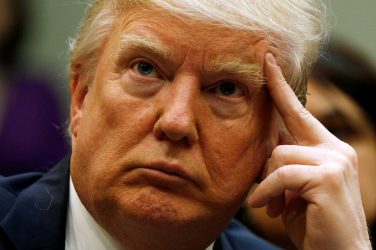 At the same moment that the lower chamber of the Brazilian congress was moving forward with the process of privatizing Brazil’s offshore oil reserves known as pre-salt and preparing to approve a decree that would freeze government funds for education and health for 20 years, coup president Michel Temer named his ninth minister. He too is facing charges of corruption before the supreme court.
At the same moment that the lower chamber of the Brazilian congress was moving forward with the process of privatizing Brazil’s offshore oil reserves known as pre-salt and preparing to approve a decree that would freeze government funds for education and health for 20 years, coup president Michel Temer named his ninth minister. He too is facing charges of corruption before the supreme court.
For those who still have illusions, the motivation of the coup and the government that emerged from it is clear: they used corruption as an excuse to install the most corrupt government in the history of Brazil, and from there, dismantle the Brazilian state.
Since the beginning of neoliberalism, the state, according to them, ceased to be the solution and became the problem, in the words of Ronald Reagan. They began to focus their fire on the state and there began, an intense struggle over the state.
In the resistance to neoliberalism, ambiguous voices also emerged that opposed the state. “Change the world without taking power,” John Holloway would say. Autonomy of the social movements in relation to politics, said others.

In practice they coincided with neoliberals in rejecting an essential instrument for regulating the free movement of speculative capital, to protect the internal market, to guarantee social rights, and to promote sovereign foreign policy.
What is it about the state that neoliberals do not like?
First, the state’s ability to counter the free market, which imposes the interests of big financial capital over the interests of the country. Second, the possibility of carrying out social policies and ensuring the rights of those the market leaves out.
Third, the potential of boosting economic growth by encouraging investments, creating jobs, promoting income distribution. Fourth, the possibility of strengthening public banks with lower interest rates, in order to carry out social policies. Fifth, the ability to ensure workers’ rights.
These observations are sufficient enough to understand why the state has become an obstacle for those who want to put the market front and center, that is, the free market of supply and demand, which favors and strengthens the power of those who are richer, more powerful, who wield large capital.
In both Argentina and Brazil, the new governments have set out to take away the state’s ability to manage the budget in favor of promoting development and distributing income.
These are governments that have the interests of finance capital at heart, that exponentially increases their profits by redistributing income upward, like a backward Robin Hood, taking from the poor to give even more to the rich.
The initiatives of these governments are a cruel list of steps to take away rights from those who have less, in order to facilitate the accumulation of wealth without producing goods or jobs.
They hate the state because, as former President Luiz Inacio Lula da Silva says, those who have less, the poor, the wage-earners, those who live from their work, are the ones who need the state.
They need the state to protect against the super-exploitation of labor, the rule of financial speculation, the subordination of the country to policies of the world’s major powers. The country needs the state, if you want it to be less unfair, more supportive, less inhuman.
All you have to do is weaken the state to see our streets and squares populated again by the poor sleeping outside, seeking to protect themselves as they can from the cold and the rain. Children populating traffic lights selling candies again to supplement the meager family budget, now a victim of the withdrawal of Brazil’s poverty reduction program “Bolsa Família.”
The battle over the state will be the essential battle of our time. The vengeance, the goal of the right-wing, of the richest, is to stop the vast majority of society from defending against them.
Less state means more market, a market controlled by speculative capital, which will gain ever more in the crisis the country is living through. Less government means more financial speculation, more misery, more unemployment, more injustice.
Emir Sader is a Brazilian sociologist and political scientist.
This article was originally published in Portuguese by Brasil 247.











